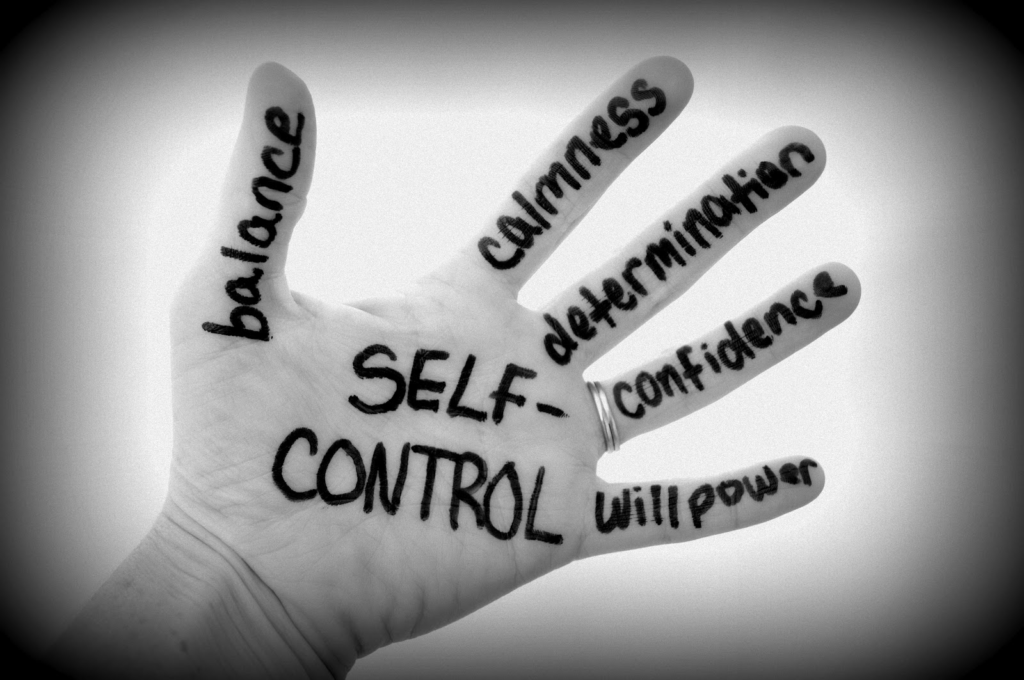Personal growth relies on self-discipline, the ability to regulate one’s behaviors, emotions, and habits to attain goals. Famous Aristotle quote: “Repetition defines us. Excellence is a habit, not an act.” This brilliant insight shows how self-discipline and motivation are linked. Disciplined conduct forms the foundation for consistent activity and goal achievement. In this blog, we examine how self-discipline boosts resilience, perseverance, and accomplishment. Understanding the synergistic link between discipline and motivation unlocks the possibility for personal growth and lifelong greatness.
How does one go about practicing self-discipline?

Do you remember when your teacher told you that in order to be successful in school, you needed to have self-discipline? It’s possible that you rolled your eyes in a mean-spirited manner at that moment. Self-discipline, on the other hand, perhaps has a little bit more significance in today’s world than it did in the past. You may be here today, wondering what all the excitement is about. In point of fact, you might be here.
What exactly is the meaning of self-discipline, and what exactly does it mean to exercise self-control over ourselves?

On the surface, self-discipline may be defined as the process of identifying compelling reasons to engage in a certain activity or task, followed by the commitment to see that activity or task through to its conclusion. To be able to exercise self-discipline, it is necessary to have an internal desire, drive, and motivation that pulls you in the direction of your objective. In spite of this, the pursuit of a goal is not the only thing at play here.
To be more explicit, self-discipline refers to your capacity to exercise control over your urges and impulses in an effort to maintain concentration (for a sufficient amount of time) on the tasks that must be completed in order to effectively accomplish a certain objective. Taking into consideration this definition, self-discipline may be summarized as the act of committing to long-term advantages without succumbing to the temptations of momentary satisfaction along the way.
Although wonderful, this description doesn’t fully explain what it means to discipline ourselves to finish a task or reach a goal. This must be broken down and related to habit formation. In this context, self-discipline is about developing daily routines that help us achieve our goals. That is, adopting tiny, regular activities helps you build habits that help you reach your objective.
This is an improvement, but it still falls short of describing self-discipline in its entirety. I’d like to further explain.
Achieving self-discipline involves deliberately controlling, correcting, and adjusting your behavior to changing life situations. Effectively, self-discipline is intentionally teaching oneself to follow a set of rules and standards that shape and match your thoughts and behaviors to the work at hand.
Given this, self-discipline is definitely valuable. It can boost productivity and self-confidence. In projects and tasks, self-discipline gives you more control. Keeps you focused longer. As your tolerance increases, you can accomplish more in less time and with less effort.
What are the steps to take in order to cultivate self-discipline?

The capacity for self-discipline is not something that every single one of us is born with. In reality, it is something that we acquire and cultivate over the course of many years. In actuality, it is extremely similar to a muscle that becomes stronger as we continue to exercise over a period of time.
There are, however, some elements that must be present in order for you to start the process of developing self-discipline. There are some of these elements that originate from within you, while others originate from sources available to you from the outside. Now, let’s have a look at these various elements.
It is essential that you have a reason and WHY!

In order to begin, it is necessary to have a strong desire to accomplish a certain objective in order to establish self-discipline. There is really little chance for self-discipline if one does not have a strong desire to do anything. Self-discipline requires fuel, and as a general rule, inspiration or motivation are the two types of fuel that are required for self-discipline. If you want to be self-disciplined, you need any one of these things. Otherwise, you will have a difficult time maintaining your concentration for lengthy periods of time.
Everything boils down to the fact that you need to have sufficient compelling reasons for performing any work or project that you commit to in order to be successful. To yourself, ask:
What is it that I desire?
Why do I feel the need to have this?
More precisely, why is it necessary for me to follow through and complete this task?
The greater the number of convincing reasons that you are able to uncover, the more gasoline you will have to propel your self-discipline ahead.
Unwavering commitment and accountability are prerequisites for attaining self-discipline.

Arguments on their own are never sufficient to justify something. In addition to this, you will need to have an unrelenting dedication to doing whatever it takes to obtain the desired result. Naturally, this is by no means a simple task. It requires discipline to make a commitment over an extended period of time, and the majority of individuals are not very adept at doing this on their own. Some degree of accountability is something that these individuals are inherently missing.
Making a commitment to anything for an extended period of time necessitates that we either keep ourselves accountable for our activities or that we have someone else hold us accountable for them. While each approach is effective, the most fruitful outcomes will be achieved when the two approaches are utilized in tandem.
It is necessary to have both rewards and punishments for self-discipline.

During the course of our pursuit of our objective, our levels of motivation frequently fluctuate. On occasion, you will experience a surge of intense motivation, but on other occasions, you will find it difficult to complete particular activities and chores. In order to prevent oneself from getting into these cycles, it may be beneficial to implement some rewards and the possibility of consequences. At certain points throughout the day, you may find it helpful to employ rewards and punishments to help direct your behavior.
On the other hand, you may give yourself a reward for engaging in particular sorts of activities or for making specific decisions. It is also possible to punish oneself for engaging in other sorts of activities or for making decisions that are not in your best interest. The fuel of self-discipline will continue to burn throughout the day thanks to the addition of these penalties and rewards, which will have an additional component.
Your own personal standards are the most important factor.

It is mostly due to the fact that you do not hold yourself accountable for maintaining a certain set of standards and that you are lacking in self-discipline in any aspect of your life. When you are working toward achieving your objective, the personal standards that you uphold help you stay on track. The choices you make, the decisions you make, the conduct you exhibit, and the activities you do during the day are all governed by these unspoken laws.
Keeping this in mind, let’s discuss the performance criteria that you will adhere to the entire time that you are working toward achieving your objective. To yourself, ask:
In what ways will I hold myself to a personal standard?
Which actions and decisions am I willing to engage in?
In what ways will I not tolerate certain actions and decisions?
How will I make things right when I see myself veering off?
The essence of this whole thing boils down to the act of establishing straightforward agreements with oneself. Self-discipline is built on the foundation of making agreements with yourself over what you will and will not tolerate. In order to fulfill this obligation, you will need to ensure that you are responsible for following through with these agreements.
When you find yourself straying from the path, it is imperative that you take steps to regulate and rectify your conduct. In a word, this is the essence of what it means to have self-discipline of the highest kind. Nevertheless, there is one additional layer that we have not yet exhausted in our investigation. This is the atmosphere that you are in.
Establish a level of competition in the environment

A competitive atmosphere that propels you ahead toward your goals is required of you in order to complete the last tier.
Having said that, this does not necessarily imply that you are in competition with other individuals. To put yourself in a mindset where you are striving to outwork and outperform other people is surely something that you are able to do. If you want to discipline yourself, this is definitely one way to do it. On the other hand, there is yet another approach to doing this task.
There is also the option of competing against your best self in order to accomplish this.
A helpful strategy that might assist you in maintaining your concentration, motivation, and discipline is to compare your present outcomes to your previous performance. In fact, it can be the one essential component that keeps your self-discipline going even when things don’t happen according to perfectly planned-out steps.
To Conclude.
Self-discipline is the most important factor in developing one’s character, which, when combined with intrinsic motivation, forms the foundation for success. Excellence does not arise from isolated achievements but rather from deeply established habits developed through consistent, self-disciplined effort, as we understand from Aristotle’s ageless wisdom. People are able to overcome difficulties, keep going when things get tough, and achieve their goals when they understand the interdependent nature of discipline and motivation. We may open the door to long-term drive, resilience, and success in our pursuits by committing to practices that build self-discipline. Therefore, let us answer the challenge to develop self-controlled habits, for this will lead us to our greatest potential and success in all areas of life.
Enjoy the read and leave a comment
To be continued in the next post.